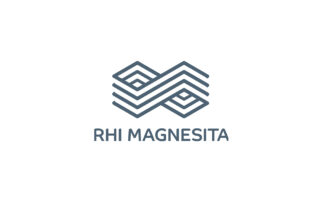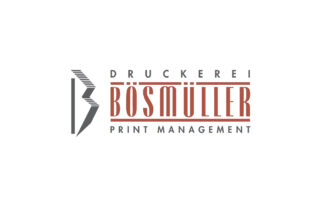Our offer for you
We accompany you in your decarbonization process and your transformation process to a sustainable company. We offer all ESG-related expertise from a single source. Be proactive! Environmental protection is becoming increasingly important for companies due to developments in the field of ESG, which is why companies must act proactively today…
News
02.07.2025 Draft of the New Version of ISO 14001 Published
03.04.2025 CSRD innovations throught omnibus procedures
19.09.2024 Interview with ESG expert Hans Kitzweger
27.03.2024 Climate change included in ISO standards
Callback service
Would you like us to call you back? Use our callback service!
RiskSafe ESG – Advantages
- All ESG-relevant expertise from a single source
- 10+ years of experience in CSR reporting
- 20+ years of experience in environmental protection, occupational safety and management systems
- 30+years of experience in operational technologies and business organization
- Consultants with operational experience to whom you don’t have to explain your company first
- Practical, risk-based and cost-efficient support
We support you with the following topics
According to the EU Corporate Sustainability Reporting Directive (CSRD), large, medium-sized and listed companies must prepare an annual sustainability report…
Based on the EU Corporate Sustainability Reporting Directive (CSRD), companies will in future have to disclose the greenhouse gas and CO2 emissions they cause…
High greenhouse gas emissions must now be classified as a business risk, as they will lead to poorer ESG rankings in the medium term…
In principle, all companies that have to publish a non-financial report as part of the management report in accordance with the CSRD are affected by the EU Taxonomy…
All offers
We provide you with all ESG-related services from a single source. Our practical consultants are happy to offer you professional support on the following topics. Please click on a topic to find out more:
Decarbonization
CO₂ Balancing
Climate Change Consulting
Emission Trading
CBAM
These companies, among others, already rely on our expertise:







Our answers to your most frequently asked questions
Our ESG consulting process is designed to support you and your company in developing and implementing a sustainability strategy that not only meets regulatory requirements but also fits strategically with the corporate strategy. Clear rules and processes are established, responsibilities are defined and ESG issues are explicitly integrated into the organizational structure.
We always take a pragmatic approach that minimizes the effort for companies. This is supported by our many years of experience in setting up management systems and interpreting normative requirements.
A prototypical process can be described as follows:
- Initial analysis & goal definition: The ESG consulting process begins with a comprehensive analysis of the current ESG maturity level, which is carried out through interviews, document reviews and benchmarks. Relevant regulatory requirements, such as the CSRD or the EU taxonomy, as well as the expectations of stakeholders are identified. On this basis, a tailor-made ESG strategy is developed that integrates seamlessly into the existing corporate strategy and enables sustainable value creation.
Materiality analysis & strategy development: As part of the materiality analysis, the most important ESG topics are identified and prioritized, with both internal and external stakeholders being actively involved. Suitable key figures are then defined in order to make goal achievement measurable and to effectively manage the sustainability strategy. A key component is also the development of CO₂ monitoring, which shows clear reduction paths and enables continuous review and optimization of emission values. - Implementation & change management: Clear rules and processes are introduced for sustainable corporate management that enable a structured integration of ESG criteria into decision-making and business processes. At the same time, training and targeted communication measures play a central role in anchoring ESG topics in the corporate culture and raising employees’ awareness of sustainable action.
- ESG reporting & communication: A meaningful and authentic sustainability report according to recognized standards such as GRI, ESRS or TCFD documents a company’s sustainability journey in detail. Intermediate goals and milestones achieved are recorded in order to make progress understandable and show a clear development. Transparent communication of these results can sustainably strengthen the trust of customers, suppliers and employees.
- Monitoring, evaluation & further development: Regular review of ESG measures enables continuous optimization and adaptation to new regulatory requirements and market changes. The integration of efficient ESG data management plays a central role in establishing automated reporting systems and ensuring transparent traceability of sustainability performance. In addition, companies are specifically prepared for certifications and ESG ratings in order to increase their attractiveness to investors, customers and other stakeholders.
RiskSafe ESG Management offers companies a holistic approach that ranges from a detailed analysis and status quo survey to the successful implementation of ESG systems. We not only accompany your system implementation or review your ESG reporting, but also place particular emphasis on communication, change and risk management in order to anchor sustainable changes. With our many years of experience in sustainability management, management systems, CO2 management, legal compliance and as environmental auditors, we are the ideal partner for your transformation process. Thanks to our extensive expertise, we provide companies with targeted support in integrating efficient ESG data management systems, automated reporting systems and preparing for certifications and ESG ratings in order to secure long-term competitive advantages.
Our ESG consulting supports your company in key issues relating to environmental sustainability, social responsibility and ethical corporate governance. Our focus is on several strategic priorities:
- ESG & Sustainable Transformation: ensuring long-term success through the sustainable alignment of strategy, business model and corporate processes. The design of a resilient and sustainable supply chain and transparent ESG communication help to build trust and safeguard reputation.
- Decarbonization: Companies receive support with carbon accounting, emissions trading and climate change consulting in order to achieve ambitious climate targets and actively contribute to the energy transition.
CSRD reporting: Compliance with the legal requirements regarding CSRD reporting, taking a pragmatic approach and minimizing the effort in the interests of the client. - ESG marketing: Support in the development and implementation of ESG marketing strategies in order to place ESG services on the market in the best possible way.
ESG and sustainability management are essential for companies today because they not only meet regulatory requirements but also secure long-term economic benefits. Sustainability is no longer a voluntary initiative, but a corporate duty to successfully overcome social, ecological and economic challenges. ESG criteria play a crucial role in the financial future of companies by helping to reduce costs, develop new sources of income, minimize risks and increase brand value – because the costs of inaction are often higher than investments in sustainable measures.
Sustainable business also strengthens competitiveness, market position and reputation by promoting innovation and positioning companies as responsible. Open dialogue with stakeholders creates transparency and trust among customers, investors and business partners. At the same time, sustainable corporate management increases operational efficiency by saving valuable resources and reducing costs. Companies that actively integrate the topic into their strategy benefit from improved risk management because social, ecological and economic challenges can be identified early and opportunities can be exploited in a targeted manner.
The topic is also becoming increasingly important as an employer, as young talent in particular prefer companies that act responsibly and pursue clear sustainability goals. At the same time, it helps to strengthen governance practices by promoting transparency, clear structures and ethical action, which ensures a company’s credibility in the long term. Ultimately, a strategic ESG orientation ensures the future viability of companies by creating sustainable business models, building resilience and preparing companies for future social and economic changes. Companies that strategically integrate ESG into their business strategy not only benefit from regulatory compliance, but also increase their market position, efficiency and innovative strength in the long term.
In addition to meeting legal requirements and being attractive to stakeholders (investors, employees, the public, etc.), a company’s financing will increasingly depend on its ESG performance in the future. In other words, companies with poorer performance will pay higher interest rates for debt capital. ESG performance is therefore becoming a highly critical parameter for companies.
The success of ESG initiatives can be evaluated using various metrics and indicators that are based on a company’s individual sustainability goals. Key performance indicators include the reduction of greenhouse gas emissions, the increase in energy efficiency or the transition to sustainable supply chains in the area of environmental sustainability. In the social area, progress can be measured, for example, by increasing diversity and inclusion in the workforce, improving employee satisfaction or ensuring fair working conditions along the entire value chain. In the area of governance, transparent corporate structures, ethical business practices and greater compliance with regulatory requirements are key indicators of success.
Systematic recording, analysis and reporting of these key figures is essential in order to make progress visible, document successes and identify the need for action at an early stage. Regular reporting and audits allow companies to continuously develop their sustainability strategy and adapt their measures in a targeted manner. This not only ensures the effectiveness of the initiatives, but also strengthens the trust of investors, customers and other stakeholders.
Compliance with ESG requirements is now a decisive factor for the sustainable success of your company. Anyone who ignores ESG requirements not only risks legal and financial consequences, but also considerable reputational damage. Regulatory requirements such as the CSRD or the EU taxonomy set clear standards – violations can result in fines and other legal measures. In addition, sustainability violations can be made public by the media and NGOs, which leads to a loss of trust among customers and partners. Access to capital is also increasingly influenced by ESG criteria. Investors and banks prefer companies with solid ESG performance – those who do not follow suit could risk poorer financing conditions or exclusion from sustainable funds. In many industries, ESG evidence is now a basic requirement for business relationships, especially in international supply chains. Companies that do not comply with ESG standards run the risk of becoming unattractive as business partners. In addition, internal effects are also noticeable: a poor ESG strategy can reduce employer attractiveness, which leads to higher fluctuation and difficulties in recruiting skilled workers.
To prevent these risks, we accompany you on your path to ESG compliance and support you in your transformation process. Our holistic ESG consulting helps you to meet regulatory requirements, minimize risks and at the same time achieve long-term economic benefits. Act proactively – because ESG compliance is not only a legal obligation, but also a decisive competitive advantage for the future.

